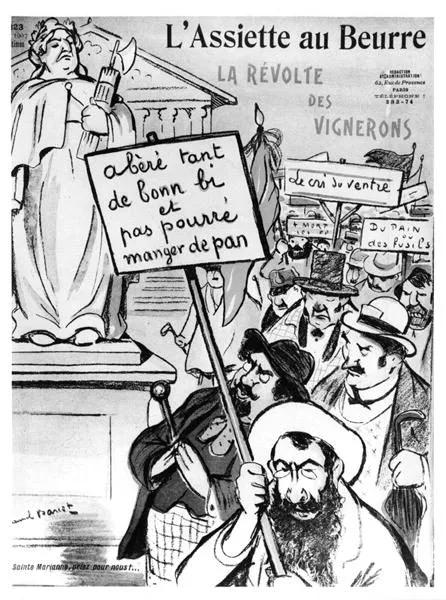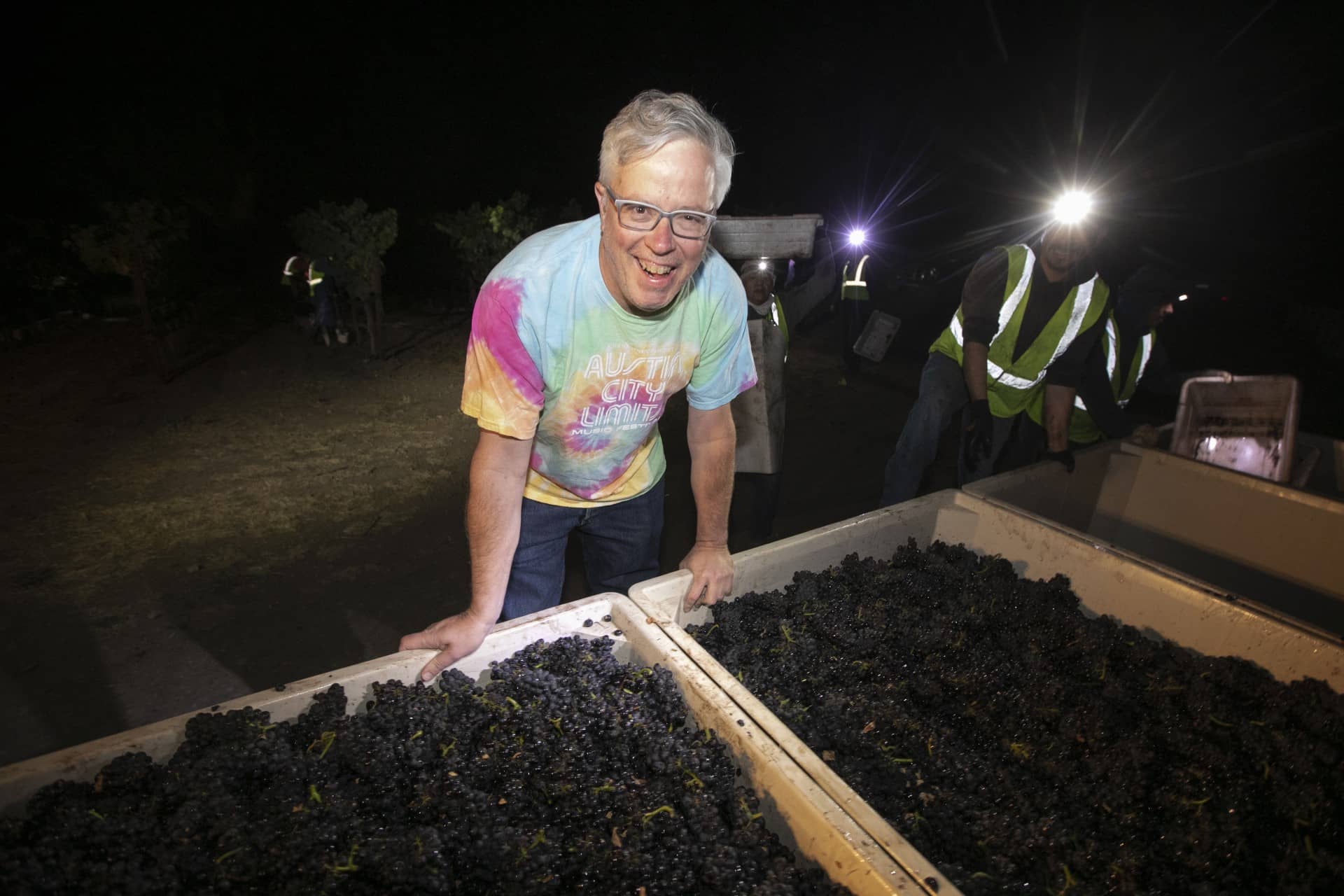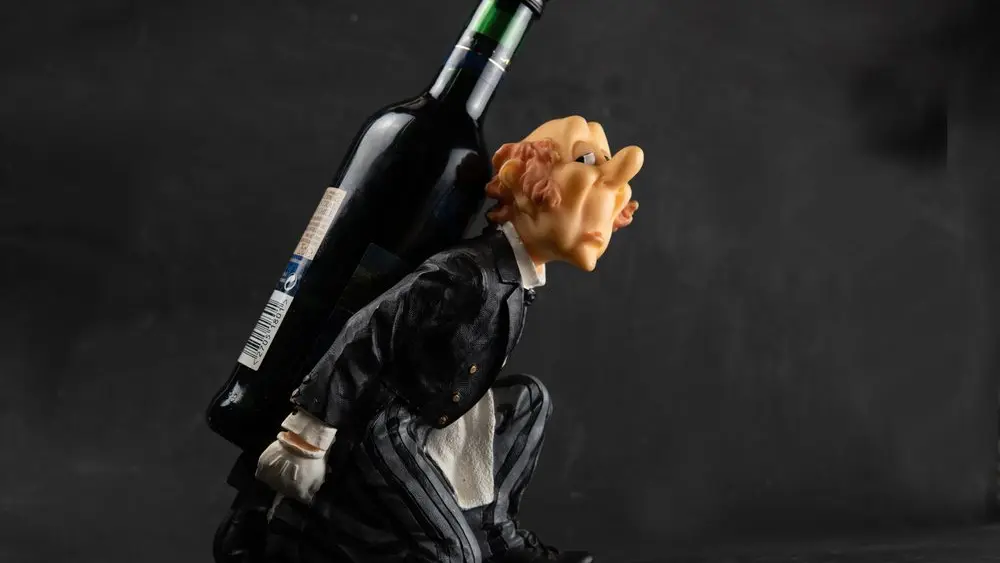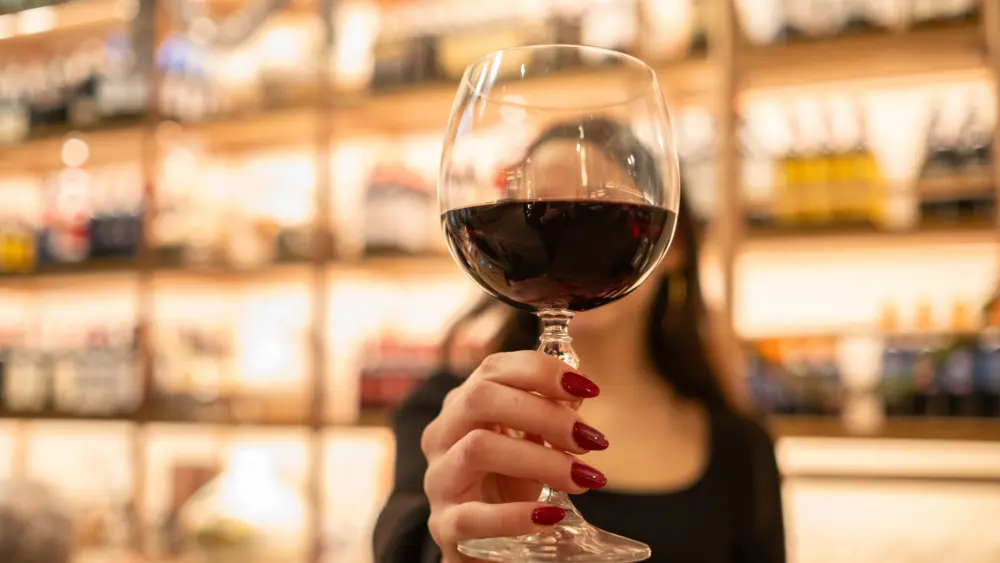
Revolt of the wine growers, front cover from 'l'Assiette au Beurre,' 1907, by Emmanuel Barcet (1870-1940).
The wine industry is in trouble. We are overrun with excess—too many grapes, too much wine and not nearly enough demand. Younger drinkers, especially in the cities, are increasingly indifferent to domestic wines, chasing the next imported curiosity or canned trend instead. Worse still, “fake wines”—products manufactured with non-wine related additives, concentrates or dubious ingredients—are flooding the market, undermining the integrity of honest producers. Meanwhile, the anti-alcohol movement is gaining traction, painting all wine with the same brush as mass-produced booze.
Sound familiar? It should. But I’m not just talking about today. This was the scene in the Languedoc at the dawn of the 20th century. Faced with collapsing markets, consumer apathy and government indifference, the winegrowers of southern France didn’t just grumble. They revolted.
It was called The Paupers’ Revolt of the Midi—or simply, The Revolt of 1907. And it might be the most powerful example of wine as protest the world has ever seen.
In response to a collapsing economy and a flood of fraudulent wines, growers in the Hérault region organized. First, they created a sales cooperative in 1901—128 producers working together to sell their wines directly, cutting out the middlemen. Other such cooperatives followed. In 1905, they built the Maraussan cooperative winery—a shared production facility, with 29 cement tanks and room for 2 million liters of wine. Above the entrance these words were inscribed: “All for everyone, everyone for all.” They were not just making wine, they were building solidarity.
And then the national government turned its back.
Instead of helping growers, it encouraged cheap imports from Algeria and allowed fake wine—heavily sugared and watered down—to saturate the market. In response, the growers rose up. More than 600,000 people took to the streets in a region of just over a million. Viticultural Defense Committees were formed. Their pledge: “We all swear to unite for viticultural defense, which we will defend by all means. Anyone… who renders us unable to win will be tried, convicted and executed on the spot.”
The protests turned violent. The government sent in troops. Leaders fled. The revolt was crushed.
But ultimately it worked.
The French government relented. Taxes on grape growers were suspended—with all taxes lifted on grapes and wine from the years 1904-1906. Sugar sales were regulated and heavily taxed to curtail chaptalization fraud. Finally, a law was passed that made clear what wine is: “No drink may be owned or transported for sale or sold under the name of wine unless it comes exclusively from the alcoholic fermentation of fresh grapes or grape juice.”
This is what wine can be: not just a product, but a statement. A banner. A movement.
And now, over a century later, we need that spirit again.
Because we’re facing our own crisis—one that’s different in detail but not in kind. Growers are calling me daily with unsold fruit. Wineries are closing. Layoffs are becoming routine. The old channels—distributors, marketing gimmicks, empty influencer campaigns—aren’t working. And the clock is ticking.
So, what do we do?
We take a lesson from Languedoc. We build alliances. We share costs. We stop thinking of each other as competitors and start acting like comrades. Maybe we form direct sales cooperatives. Maybe we blend together—not just wine, but purpose.
But most of all, we change our mindset.
The French understand that protest is part of culture. Americans have forgotten. We need to remember that wine has always been more than a drink. It’s history. It’s place. It’s people. And it’s powerful.
Bob Dylan—an icon of protest himself—once sang:
Come gather ’round people wherever you roam
And admit that the waters around you have grown
And accept it that soon you’ll be drenched to the bone
If your time to you is worth savin’
Then you better start swimmin’ or you’ll sink like a stone
For the times, they are a-changin’
It’s time we started swimming. Together.




